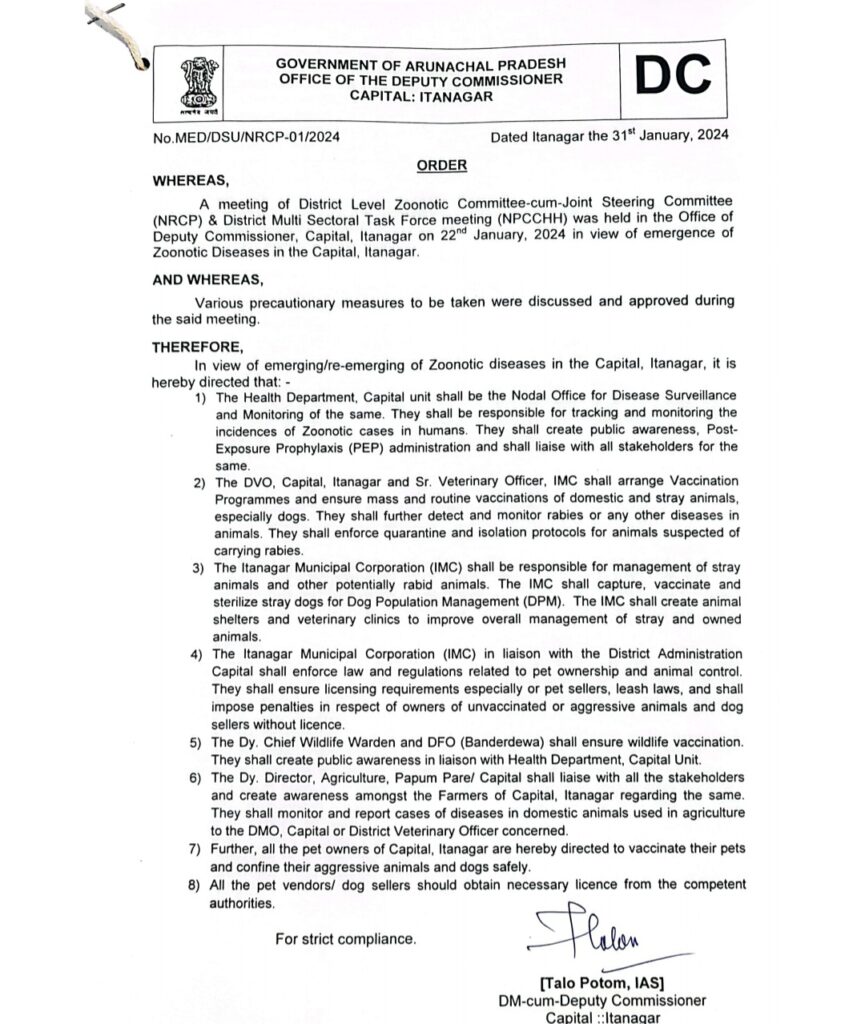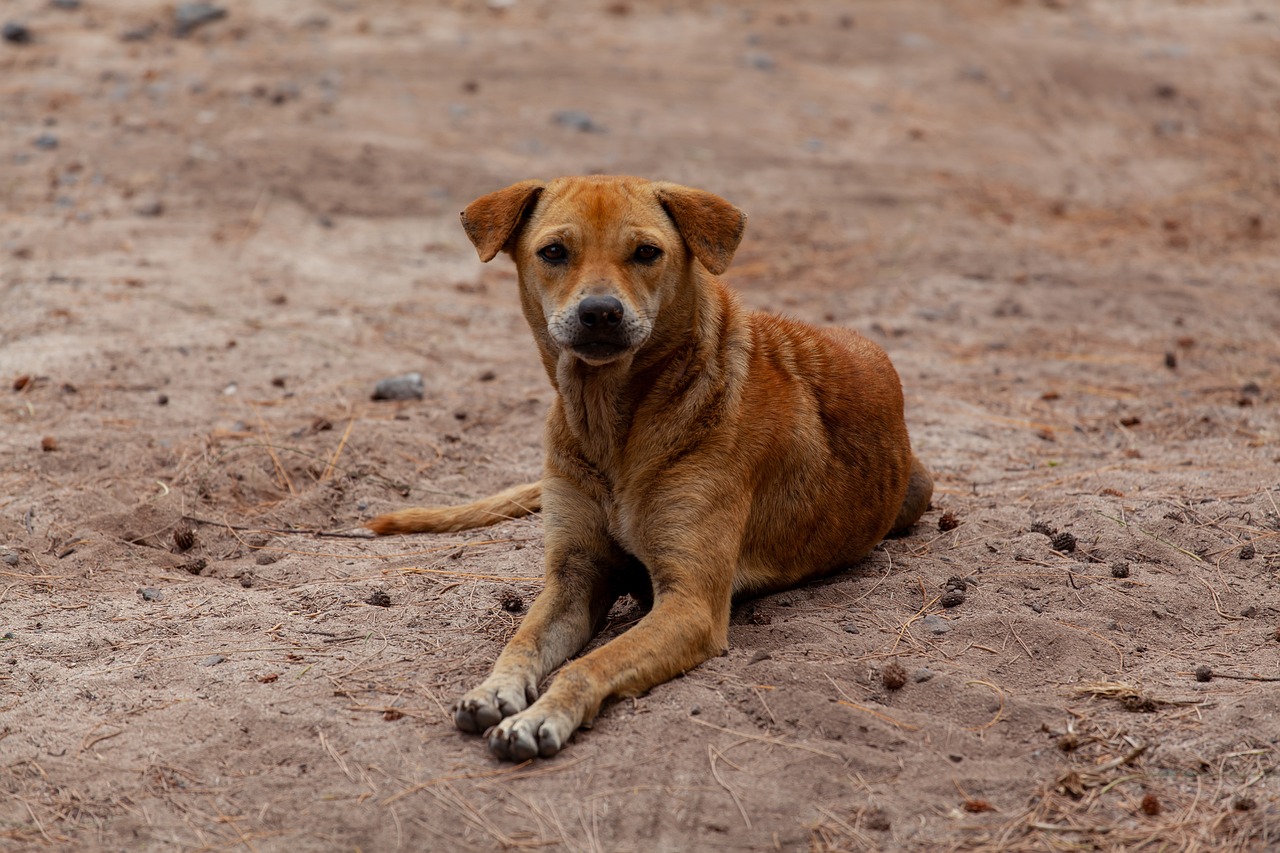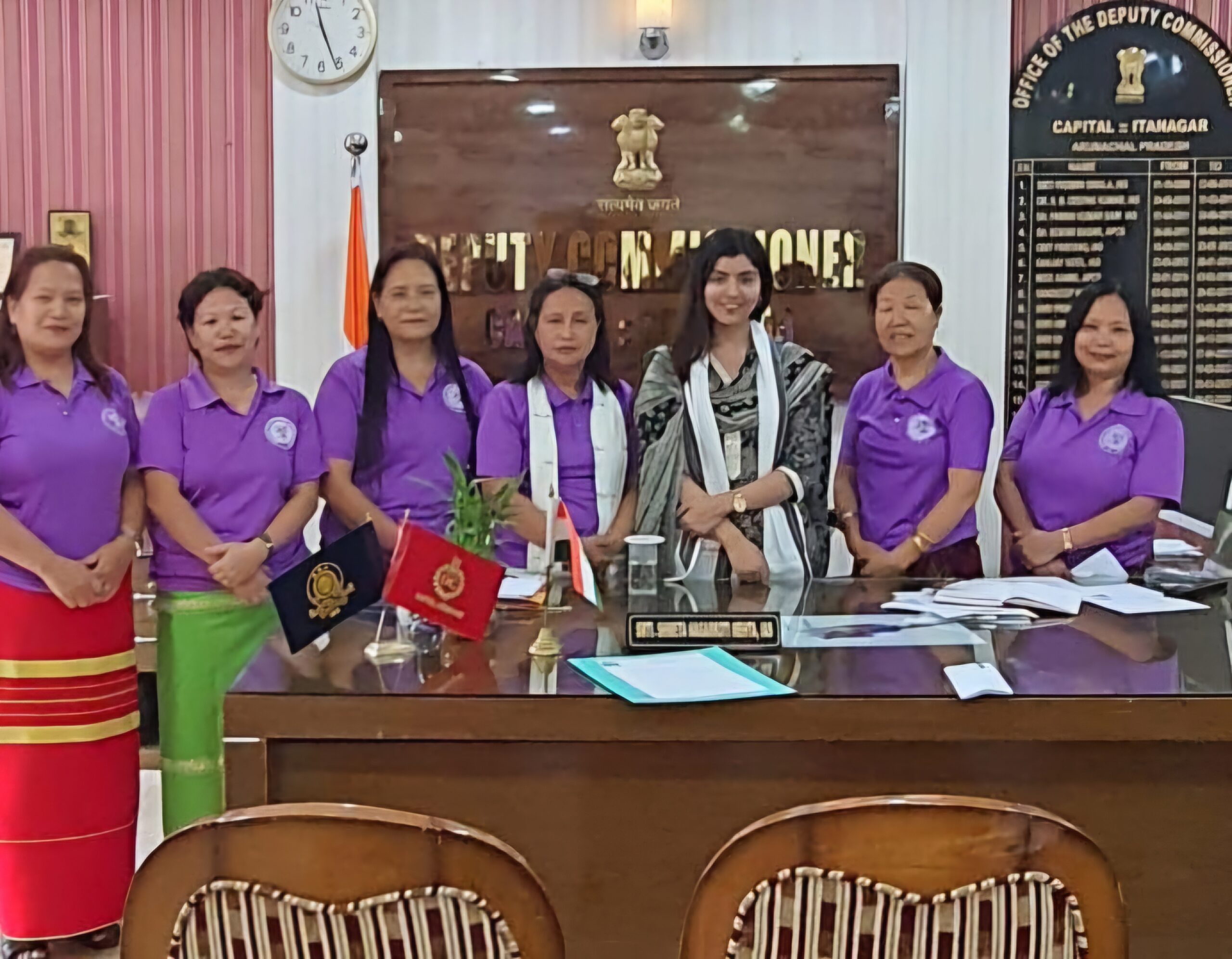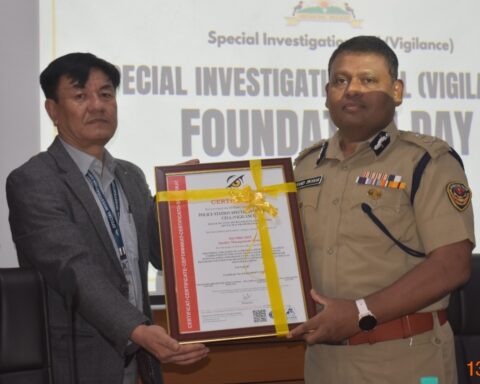Itanagar: In response to the emergence of zoonotic diseases in the capital, a meeting was convened at the office of Itanagar Capital Region (ICR) deputy commissioner where the district level zoonotic committee-cum-joint steering committee (NRCP) and the district multi sectoral task force (NPCCHH) discussed and approved a range of precautionary measures.
Zoonotic diseases refer to infections transmitted between animals and humans, resulting from various germs like viruses, bacteria, parasites and fungi.
While certain cases, like rabies, can be severe and life-threatening, others may be less severe and resolve spontaneously.
In the wake of these developments, the health department has been designated as the nodal office for disease surveillance and monitoring.
Their responsibilities include tracking and monitoring zoonotic cases in humans, conducting public awareness campaigns, administering post-exposure prophylaxis (PEP) and maintaining effective collaboration with stakeholders.
Vaccination initiatives for domestic and stray animals, with a special focus on dogs, will be organized by the district veterinary officer and IMC senior veterinary officer.
The efforts will encompass mass and routine vaccinations, detection, and monitoring of diseases, alongside the enforcement of quarantine and isolation protocols.
The management of stray and potentially rabid animals has been given to the Itanagar Municipal Corporation (IMC). The corporation will undertake tasks such as capturing, vaccinating, and sterilizing stray dogs for dog population management (DPM) and establishing animal shelters and veterinary clinics.
Law enforcement related to pet ownership and animal control will be a joint effort between IMC and the ICR district administration. This involves enforcing licensing requirements for pet sellers, adherence to leash laws, and imposing penalties for owners of unvaccinated or aggressive animals, as well as unlicensed dog sellers.

The deputy chief wildlife warden and DFO (Banderdewa) will play a pivotal role in wildlife vaccination and collaborate with the health department for public awareness initiatives.
The agriculture deputy director, meanwhile, has been asked to work closely with stakeholders to raise awareness among farmers in the ICR.
Reporting of diseases in domestic animals used in agriculture to the district medical officer or district veterinary officer is an integral part of the plan.
Pet owners in ICR are directed to ensure the vaccination of their pets and the secure confinement of aggressive animals and dogs. Additionally, pet vendors/dog sellers are mandated to acquire necessary licenses from competent authorities.
ICR deputy commissioner Talo Potom has emphasized the need for strict compliance with the outlined measures.
“This collaborative initiative aims to proactively address the challenges posed by zoonotic diseases, ensuring the well-being of both the human and animal populations in ICR,” the DC said.
Also read: Arunachal entrepreneur Tage Rita’s kiwi wine earns global recognition as case study





